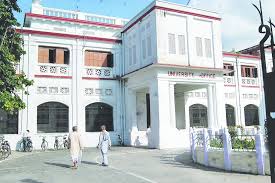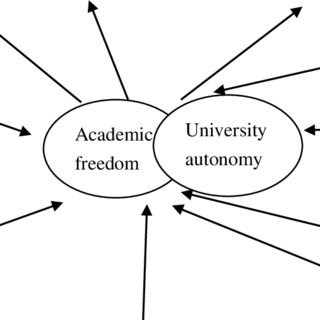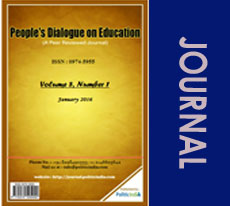Issue of Direct Salary Payment to Teachers and Employees of Public Universities in Bihar, with Special Reference to Patna University
- Post By PoliticIndia.com on
- 14/Jun/2024

Khagendra Kumar
Issue under Consideration
The issue of direct salary payments by the government to the teachers and employees of the public universities in Bihar raises several important questions about university autonomy, governance, and the role of state funding in higher education. Let's address each of these questions systematically.
Background
The state government’s record of making payments for grants for salaries and pensions of working and retired teaching and non-teaching employees of the publicly funded universities in Bihar is so inconsistent that their monthly salaries and pensions could not be paid to them regularly. They receive their salary and pension intermittently, 4 to 6 times a year, thus putting them through various hardships. Delays in salary payments could disrupt their ability to meet recurring financial commitments such as educational expenses for their children, EMIs for loans, and other regular payments and obligations, causing financial distress.
In order to avoid delays in the payment of salaries and pensions, Patna University initiated a good practice of making timely payments of salaries and pensions using its internal resources as loans, despite delays in receiving grants from the Education Department of the Government of Bihar nearly two decades ago. Once grants are received from the Education Department, GOB, the loan amount used to pay salaries and pensions is returned to the internal fund. This demonstrates a commitment to financial stability and employee welfare. This approach has been supported by an order from the Honourable Patna High Court, highlighting its legitimacy and importance.
The current practice allows employees to trust that their financial needs will be met promptly, aiding in their financial planning. The proposed move of the Education Department to shift from making available grants to the public universities of Bihar for payment of salaries to direct payments to teachers and all other employees by the government could undermine this trust created by Patna University due to the state's inconsistent payment history.
Precedent and Practice
If there is no precedent for the state government directly disbursing salaries to university employees, such a move could be challenged on grounds of procedural irregularity. Precedents and established practices form a crucial part of administrative law and governance.
Legal Framework
University Act: The concerned university Act likely outlines the responsibilities and powers of the university authorities, including the payment of salaries to employees. Any deviation from this statutory framework would require an amendment to the act or an explicit legal provision allowing such direct payments by the state government.
Employment Contracts: The service conditions of university employees are typically governed by contracts and university regulations. These conditions would include salary disbursement procedures. Any unilateral change by the state government could be contested as a breach of contract.
Consent of the employee and employer
Changes to the method of salary disbursement should involve the consent of the employees and employer through its appropriate authorities, as they directly affect employment conditions and compliance with the university's administrative and financial protocols. While the university receives funding from the state government, the university’s administration, including the payment of salaries, is managed by the university’s authorities as per the established statutes and regulations. Direct intervention by the state government in disbursing salaries could be seen as an infringement on the employer's power and function.
Impact on University Autonomy
Direct payment of salaries by the government can significantly affect university autonomy in the following ways:
Firstly, direct payment undermines the employer's, i.e., the university's, control over the laid-down service conditions of its employees through various acts and statutes, which provide them with some unique facilities that are not provided to government employees getting direct salaries from the state government.
Secondly, it could weaken the authority of the university’s statutory bodies (like the finance committee, syndicate, and senate) in financial matters, leading to reduced administrative control.
Finally, allowing direct payments could set a precedent for further governmental intervention in other areas of university administration, eroding the autonomy guaranteed by the university act.
State's Role in Funding
The state’s refraining from providing adequate funding to the public universities of Bihar can be seen as a neglect of her public responsibility. Adequate funding is crucial for several reasons:
Quality of Education: Sufficient funds ensure that the university can maintain and improve the quality of education, infrastructure, and research facilities.
Sustainability: Adequate funding supports the long-term sustainability and growth of the university, enabling it to fulfill its educational and societal roles effectively.
Staff Morale and Performance: Reliable funding for salaries and pensions is essential for the morale and performance of teachers and employees, impacting the overall academic environment.
Conclusion
Legally, unless there is a specific provision in the University Act or an equivalent legal instrument authorizing such direct payments by the state government, this practice could be challenged as inappropriate and potentially illegal. The appropriateness of this measure also hinges on the implications for university autonomy, administrative efficiency, and adherence to established employment contracts and procedures. It would be advisable for the state government and university to engage in a consultative process to address any financial or administrative issues without undermining the statutory and contractual frameworks governing university employment. The proposal to pay salaries directly to the teachers and employees by the education department without their consent does raise concerns about undermining the university's autonomy. It shifts control from the university's statutory bodies to the state, potentially affecting financial independence and administrative authority. Adequate and consistent funding by the state remains essential to upholding the quality and autonomy of public universities like Patna University. Given these points, it is crucial that any such proposal be reconsidered, with a focus on maintaining the established practice of timely salary payments through the university's internal resources. The state government should instead work towards improving the regularity and timeliness of grant disbursements to support the university's financial management, rather than imposing direct payment systems that could disrupt established and effective practices.





